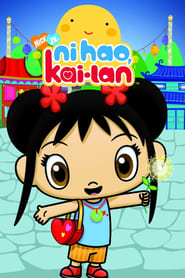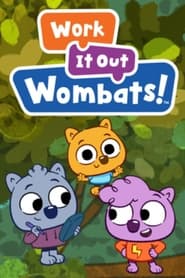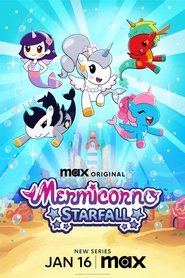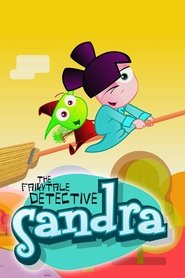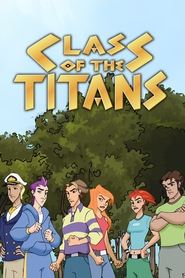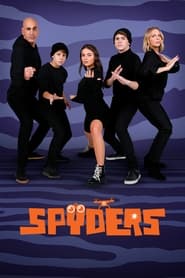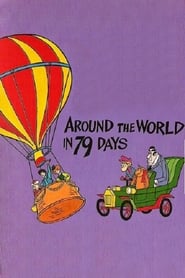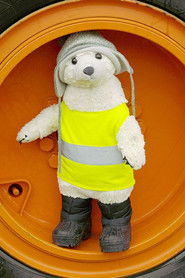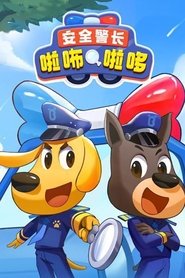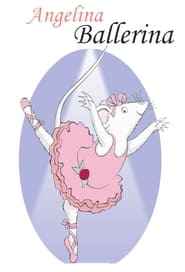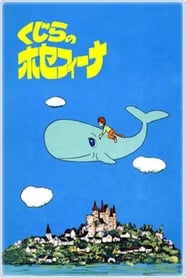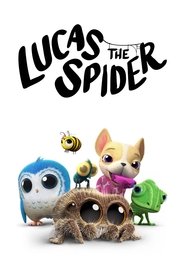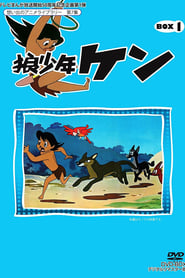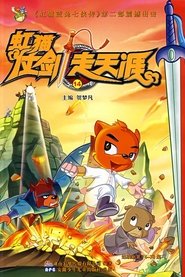Kids TV Series - Page 78
-
Ni Hao, Kai-Lan
2007
Ni Hao, Kai-Lan
2007
star 8Six-year-old Kai-Lan and her animal pals face kid-sized hurdles, learn about getting along and teach young viewers a few words of Chinese along the way. -
Work It Out Wombats!
2023
Work It Out Wombats!
2023
star 4.5Full of endless energy, Malik, Zadie and Zeke run, bounce, roll and romp, always on the lookout for interesting Treeborhood problems to solve. Malik is thoughtful, considerate and sometimes set in his ways (which can be a good thing when you’re problem-solving). His speedy, adventurous younger sister, Zadie, is a brainstormer extraordinaire, with ideas that range from silly to very smart. Zeke is the youngest sibling — a funny, curious cuddle-bug who loves to play and explore. Super, their grandmother, is the Superintendent and unofficial “Mayor” of the Treeborhood. -
Mermicorno: Starfall
2025
Mermicorno: Starfall
2025
star 7In a fantastical and magical undersea world, where a team of Mermicorno (enchanting half-Unicorno/half-fish creatures) join together to save the ocean from the threat of the evil Ika Inkblot. -
阿笨猫
1999
阿笨猫
1999
-
Sandra, The Fairytale Detective
2009
star 7.6Sandra, The Fairytale Detective is a Spanish TV series. Created by Imira Productions. It is an animated program aimed at young children that attempts to combine the genres of fairy tales and detective novels. A few years back, Imira Entertainment sought a way to combine those two concepts while simultaneously creating one of the most inventive cartoons in years. Now, the company is taking its proven success and shopping it around a number of new locations, bringing Sandra to TG4 in Ireland and RSI in Switzerland. The Fairytale Detective is accompanied by her pal Fo the Elf, a 508 year old assistant who gathers Sandra’s cases, as well as Rachel, Sandra’s best pal. As if the mysteries weren’t tough enough, Markus will appear on occasion, hoping to spoil the day by bullying Sandra. Thankfully, though, Sandra always finds her way. -
Class of the Titans
2006
Class of the Titans
2006
star 7Imprisoned thousands of years ago by his son Zeus, Cronus, the god of time, escapes from the Underworld. Now history is about to repeat itself as Cronus heads a legion of mythological monsters in his quest to conquer and destroy the world...But there is a prophecy... Seven teenagers stand in his way. The unknowing descendants of great mythological heroes, under the guidance of the Olympian Gods, find the power within themselves to save the world from the encroaching evil. -
Spyders
2020
Spyders
2020
star 7.9While spending a summer-long family vacation by the lake, siblings Tommy, Nikki, and Daniel Fisher discover that their seemingly boring parents are actually daring undercover spies, who are chasing a devious villain aiming to dry up the country's water supply. When the siblings realize their parents' mission is in jeopardy, they form a secret task force called THE SPYDERS in order to help them out. Tommy, 12, a cute, irresistible goofball; Nikki, 15, a well-meaning but impetuous leader, and Daniel, 16, a sedentary, anxiety-ridden computer nerd, use their brains, charm, audacity and unbridled enthusiasm to outsmart the villain, who has so far eluded their parents. Will the untrained, blundering Spyders succeed where mom and dad failed? -
Klincus
2024
-
M.A.S.K.
1985
M.A.S.K.
1985
star 7.3The ‘80s animated series about masked crime fighters, the Mobile Armored Strike Kommand, out to stop the chaotic crime syndicate known as V.E.N.O.M. -
Around the World in 79 Days
1969
star 5This is a story involving balloonist Phinny Fogg. He and reporter teenagers Jenny and Hoppy set out on a globetrotting adventure to travel around the world in 79 days and beat the original record set by Phinny's father. The trio are in competition for both the record and a £1,000,000 prize against the sinister Crumden. Crumden is aided by his idiotic chauffeur Bumbler and his pet monkey Smirky. -
Big Machines
2020
Big Machines
2020
In Oiii's new series for the little ones, Bamse Broom puts on his work clothes and joins good machine operators in their chopping, digging, drumming, noisy BIG MACHINES! -
Magiki
2017
Magiki
2017
-
安全警长啦咘啦哆
2022
-
Goldie & Bear
2015
Goldie & Bear
2015
star 5.8You’ve heard the story of Goldilocks and the Three Bears, but did you hear what happened after the story ended? Goldilocks apologized to Bear and now they’re best friends. -
Angelina Ballerina
2001
Angelina Ballerina
2001
star 7.3Set in Chipping Cheddar, a place similiar to 1920s London, Angelina Ballerina features Angelina Mouseling, a bold little mouse with big dreams - she hopes to become the greatest ballerina in Mouseland. -
The Adventures of Figaro Pho
2012
star 6.2Figaro Pho is a warm-hearted, adorable, quirky and mischievous character ... who just happens to be afflicted with every phobia imaginable. -
Josephina the Whale
1979
-
Lucas the Spider
2021
Lucas the Spider
2021
star 7.2Follow the adventures of an endearing young spider as he and his friends try to navigate the big world around them. -
Wolf Boy Ken
1963
Wolf Boy Ken
1963
-
虹猫仗剑走天涯
2008
